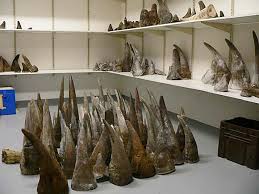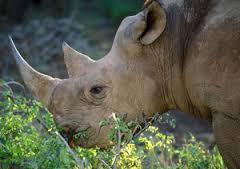Species loss and the need for environmental education are common themes discussed by SEJ experts

By Joan Hoffman
Human predation is rooted in the financial gain to be made from selling various species and their parts. Four of our wildlife and environmental specialists from our prior brown bag lunch talks at John Jay College: Julie Viollaz on leopard poaching in South Africa and India; Lieselot Bisschop on e-waste between Europe and West Africa; Mary Ting on tortoise conservation in the Galapagos; and Matt Bracken on rhino poaching in South Africa, have all discussed the importance of educating consumers about the damage that their demands are having on local fragile ecosystems.
Three threads that need to be included in this global educational conversation include 1) the importance of species loss or the role of biodiversity; 2) misinformation and misunderstandings about the ability of species to regrow body parts; and 3) the re-examination of traditional, cultural uses of animal parts in light of the human population growth and the extinction of the species. It is clear that many people of all ages, educational and economic backgrounds do not understand the interdependent nature of biodiversity (e.g. rhinoceroses beat down the grass and open areas for other plants and animals). Others have been taught falsehoods such as the notion that shark fins can regrow after being cut off or that elephants’ tusks fall out naturally. It is imperative  that discussions about traditional, ceremonial use of animal parts be conducted within the context of a respectful and open conversation, while still addressing the pressing environmental concerns.
that discussions about traditional, ceremonial use of animal parts be conducted within the context of a respectful and open conversation, while still addressing the pressing environmental concerns.
All of our wildlife speakers have pointed out a disturbing, common theme: there is a low level of enforcement, whether in the National Parks of the Galapagos or South Africa, or in other critical areas, including national borders. The problem persists, even in places that have implemented programs to stop the importation of protected species. Education is the key to ending the demand.
Joan Hoffman is an Economics Professor at John Jay College of Criminal Justice and the author of The Cooperation Challenge of Economics and the Protection of Water Supplies: A Case Study of the New York City Watershed Collaboration (2011).